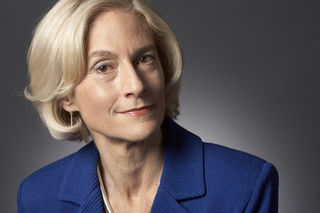
Anger
Our Anger Crisis: The Pleasure and Pain of Anger
Martha Nussbaum on why we should spurn anger
Posted August 9, 2016
Second in a series of posts on what philosophy can contribute to understanding and addressing anger (part I here)

Martha Nussbaum is one of the world’s most eminent living philosophers. Her recent book Anger and Forgiveness shows why. For Nussbaum tackles, with directness, candor, and clarity, the proper place of anger in a human life.
Nussbaum’s conclusion is that we should strive to reject anger, for it “is always normatively problematic, whether in the personal or the public realm.” On her view, we should attempt to cultivate a gentle disposition toward those people and events who make us angry, striving to understand and sympathize with them rather than lashing out. And even when we have seemingly good reasons for anger, we should not look to characters such as the fictional General Maximus (portrayed by Russell Crowe in Gladiator), who nurtures his desire for vengeance until he is given the opportunity to confront his enemy Commodus in a gladiatorial battle to the death. For Nussbaum, our role model should instead be someone like Nelson Mandela, who despite having myriad grounds for justified anger toward the captors who imprisoned him for decades, never treated them angrily.

Nussbaum recognizes that in rejecting anger, she is arguing for a controversial conclusion. Anger, Nussbaum observes, has a mixed reputation. It takes little imagination to come up with examples of how anger can become destructive, even self-destructive. But on the other hand, we often go to great lengths to defend our own anger and cling to it well after the events that prompt it. A person without anger seems weak, unwilling to respond to, or even to perceive, the slights done to her.
As we noted in the last post, anger has an odd phenomenology. As Nussbaum puts it, anger involves both pleasure and pain. A child cries – why? The child might be in physical pain. But the child might also be angry, and it doesn’t seem like a coincidence that the very same behaviors result from anger and from pain. Yet anger is a ‘pain’ that we nevertheless have warm feelings toward. Why this should be becomes clearer when we consider the nature of anger.
Following Aristotle, Nussbaum understands anger as a response to wrongful injury or damage done to us by other people. The injury or damage can be done to us directly, as when someone physically harms us, or indirectly, as when someone injures or damages something we care about, such as a vandal damaging a beloved building or work of art. This is the painful part of anger: our sense of having been done an injustice by another. But central to Aristotle’s, and Nussbaum’s, understanding of anger is that it involves a yearning for retribution. When we are angry, we desire that the source of our anger suffer for having wronged us. We need not hope that their suffering be caused by us. We might, for example, hope that the legal system will impose punitive suffering on them. Or perhaps we hope that those who wrong us will suffer due to natural events or causes – contracting a fateful disease, say, or having their home destroyed by a natural disaster.
But the crucial point, for Nussbaum, is that the ‘pleasure’ of anger comes from the anticipation of this retribution. We somehow expect that the pain of anger will be vindicated, and hence will dissipate, when we see those who have wronged us come to sorrow.
Nussbaum raises challenging and fundamental questions about our desire for retribution against those who have wronged us: What good is that really – should we want to see those who have wronged us suffer for it? Granting that retribution feels good, is it in fact good?
Nussbaum considers three defenses of anger in her book:
- Anger is necessary to protect our dignity and self-respect.
- Anger is essential to taking seriously those who wrong us (that is, unless we are angry at someone who has wronged us we are not really treating them as adults responsible for their choices and actions).
- Anger is an essential part of combatting injustice.
None of these, she argues, is fully convincing. We can protect our dignity and self-respect, take seriously the wrongdoing done to us, and combat injustice without cultivating a sense of anger and without responding to injustice by seeking out retribution. (We’ll critically appraise how Nussbaum rebuts these defenses of anger in later posts.)
Furthermore, Nussbaum identifies two ways in which anger is suspect. The first she calls the road of payback. On this account, causing those who anger us to suffer for their wrongdoing “somehow restores, or contributes to restoring, the important thing that was damaged.” The second Nussbaum dubs the road of status. When we are wronged, we understandably feel that others have (at least symbolically) treated us as if we have a lower status than them. When a person injures or harms us, it’s as if the implicit message is “I can harm you, since (after all) you don’t matter as much as I do.” The road of status involves ‘correcting’ this imbalance in status: The wrongdoer has lowered your status by treating you unjustly, so by causing them to suffer, you thereby lower their status and restore equality between you. The road of payback, according to Nussbaum, is incoherent. The road of status, she concludes, is “ugly”.
This is a rough outline of how Nussbaum argues for the rejection of anger. As we can see, Nussbaum’s overall argument is complex. She attempts to show that anger is not as essential for other goods (maintaining dignity and self-respect, etc.) as we often believe. Moreover, anger itself, whether it leads us down the road of payback or the road of status, does not produce anything of value
In my next post, I’d like to consider just one element of Nussbaum’s overall argument, her reasons for rejecting the road of payback. Does acting from anger give us back what we lost in the very events that lead us to anger in the first place?



